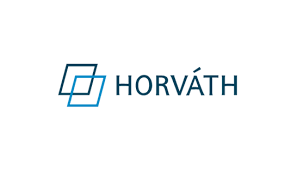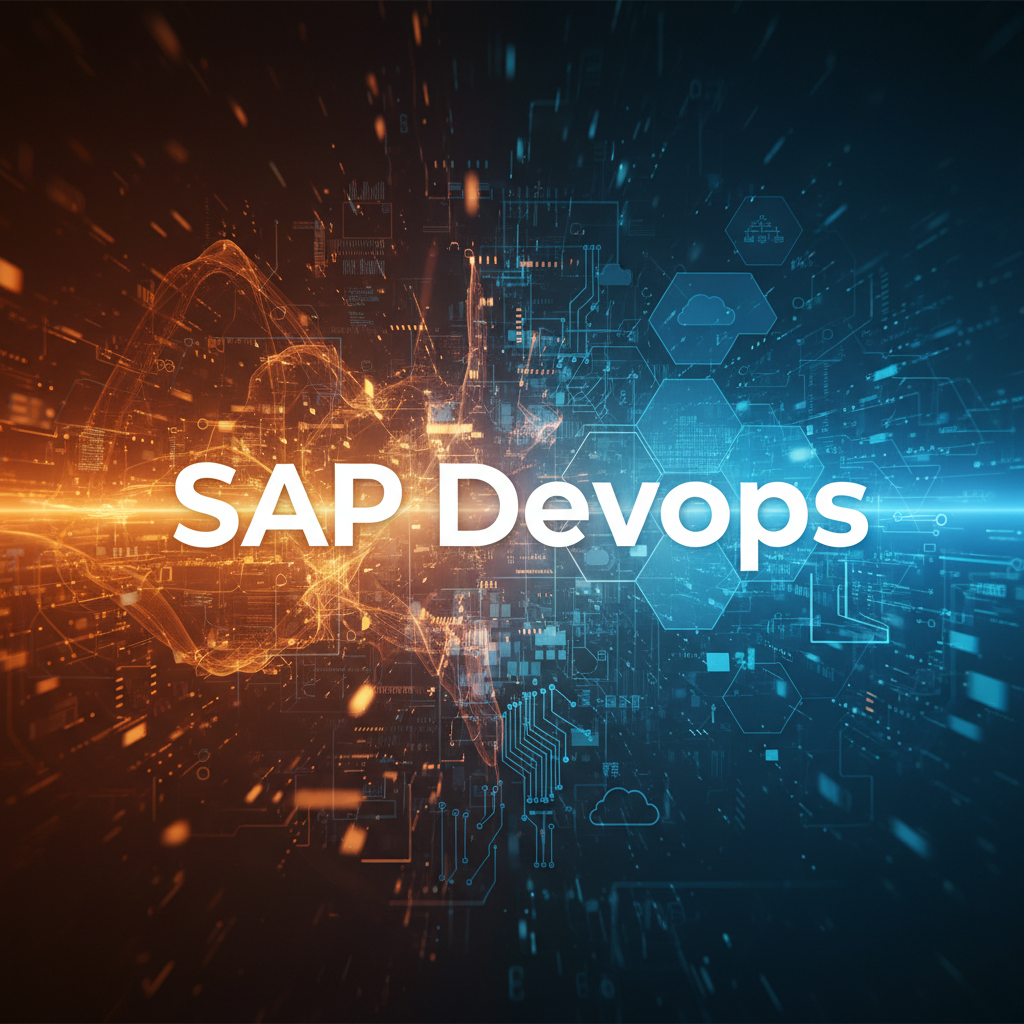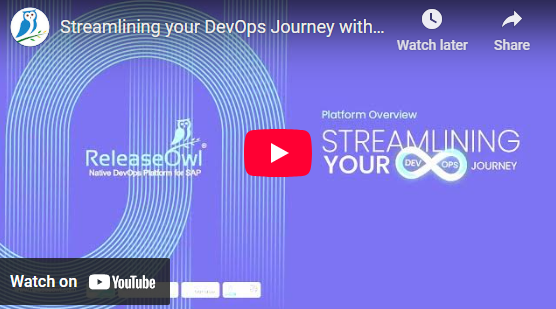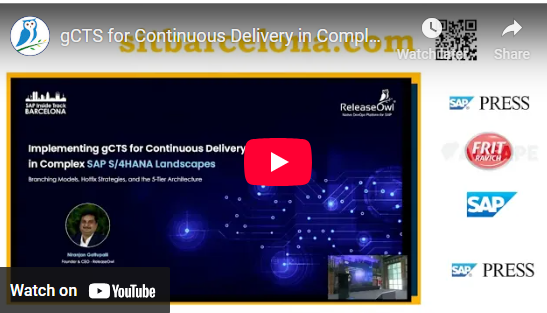SAP DevOps
What is SAP DevOps?
Today’s technology space is defined by rapid application rollouts, upgrades, and updates to meet growing business demand to be agile, innovative, and competitive. The landscape is also characterized by an interconnected network of SAP and non-SAP software that needs to function in tandem. Agile and DevOps approaches can transform software change management in a big way with software development teams delivering change faster and more frequently, along with automation enabling testing and deployment to keep pace with rapid development.
DevOps for SAP builds upon the principles of agile development by emphasizing collaboration, openness, and automation for delivering new features and services with speed and flexibility. Limited accountability, visibility, and satisfaction are the results of traditional IT development and delivery methods that often involve separate departments working independently. However, in DevOps for SAP, eliminating departmental barriers and creating a versatile team that consistently communicates with each other is the focus. This results in collaboration between Development, QA, Operations, and the business side, and fosters effective communication, a sense of ownership, and trust. The ultimate objective is to establish a smooth and uninterrupted workflow for integrating, delivering, deploying, and enhancing services.
SAPinsider’s report on Change Management and Testing in SAP found that while the traditional waterfall model dominates for SAP ERP Central Component (SAP ECC) or SAP Business Suite (37% vs. 28%), Agile and DevOps are starting to make inroads within SAP teams (43% plan to roll them out and 38% plan to roll out DevOps orchestration tools).
SAP teams, used to multi-year development projects followed by years of maintenance, must now adapt to this rapid, multi-modal development world. Many SAP teams struggle, leading to subpar application quality, suboptimal business value, security and compliance issues, business disruption, project delays, and budget overruns.
SAP teams need a suitable SAP-specific solution, with the capability to connect SAP to external continuous integration/continuous delivery (CI/CD) tools for non-SAP software. Several DevOps tools are available to accelerate workflows and enable CI/CD from ServiceNow, Microsoft Azure DevOps, and Rev-Trac; there is also open-source software such Jira, Jenkins, and GitLab.
These tools include change requirements management, source code, version control, and configuration management, among other things. Several of these tools can work across SAP and non-SAP and offer several features to enable DevOps.
- Service Management: ServiceNow enables SAP change tickets to be stored and managed with the tickets for other systems. It’s possible to create an integration between ServiceNow and the SAP development environment using an SAP DevOps solution. DevOps for SAP orchestrates and synchronizes approvals across multiple development tracks while updating status in ServiceNow as change progresses through the pipeline.
- Agile Backlog Management: An agile tool like Jira can enable the management of user stories as the business requirements change, with the SAP DevOps platform ensuring SAP development stays in sync with the current priorities in Jira, supporting reporting on status, Kanban boards, and traditional agile retrospective reporting such as burn down charts.
- Automated Testing: By integrating SAP development through a DevOps automation platform, it’s possible to keep SAP testing aligned with non-SAP testing. Testing automation tools from vendors such as Panaya ensure that testing results are verified across pipelines, preventing the deployment of change until everything passes testing requirements.
- Pipeline Integration: Many parts of the development cycle – approving code, release to quality assurance, and ultimately deployment to preproduction and production – are part of the integrated pipeline. With DevOps tools, there is full visibility of all software development through standard tools and greater efficiency resulting from standardized processes.
Why Adopt DevOps for SAP?
With customer expectations continuously rising as digital transformations pick up pace, businesses need to be agile and flexible enough to adapt to these changes or risk losing relevance. This is particularly true for traditional software Application Lifecycle Management (ALM) methods that are manual and lack transparency. DevOps allows us to update and enhance SAP systems and effectively respond to growing business demands. DevOps for SAP enables organizations to deliver new products, features, and services to their customers while minimizing risks. DevOps practices in the SAP development lifecycle can enable significant enhancements in software delivery holistically. Organizations can streamline process implementation for innovation and technical rehabilitation with reduced effort and minimized risk. With process automation in a DevOps framework, the need for manual intervention is eliminated and risk is reduced. Organizations can use automation to redirect valuable development resources towards addressing business challenges and innovation, and to seamlessly integrate SAP development into broader software delivery pipelines.
DevOps empowers IT to swiftly adapt to evolving market conditions and meet customer expectations. This ensures that IT remains highly responsive and delivers solutions that truly address the demands of the market and end users. With DevOps, organizations can free themselves from traditional SAP release cycles and transition to a Continuous Integration/Continuous Delivery (CI/CD) approach as deploying changes becomes easy and SAP systems gain enhanced agility and responsiveness.
Join SAPinsider to access opportunities for networking and engagement in the dynamic SAP ecosystem. As a member, you will have access to a wealth of valuable resources and content tailored to SAP technologies and best practices like the latest research reports, articles, webinars, and events that will keep you informed and ahead of the curve.SAPinsider membership grants you exclusive access to in-depth analyses, expert insights, and practical guidance that will empower you to navigate the ever-evolving SAP landscape with ease. SAPinsider membership will enable you to remain one step ahead and harness the latest trends, innovations, and strategies to drive your own powerful digital transformations, optimize your SAP investments, and unlock business success.














